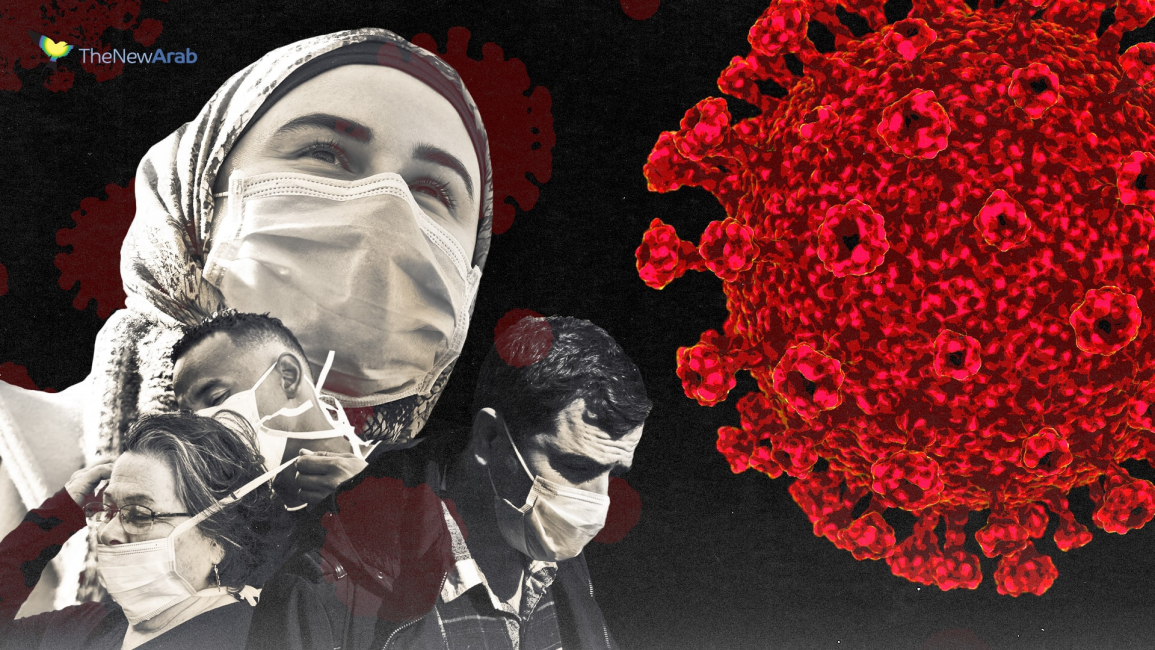The Middle East at war with coronavirus: Top stories from 19 April
1. Orthodox congregations watch Easter services from home during lockdown
More than 260 million Orthodox Christians celebrated Easter Sunday, with church leaders urging worshippers to stay at home to avoid spreading the novel coronavirus.
Ecumenical Patriarch Bartholomew I, the spiritual leader of the world's Orthodox Christians, led a liturgy to an empty St. George's Cathedral in Istanbul. The church ordered services to be closed to the public and broadcast online.
The same decision was taken in Cyprus, Greece, Serbia and North Macedonia as well as in Egypt.
Pope Tawadros II, the spiritual leader of the country’s Coptic Christians, held Easter services in an empty monastery in the desert. A few clergymen attended the services, which was aired on a Coptic Orthodox television station.
Meanwhile in Jerusalem's Church of the Holy Sepulchre, built on the site where Jesus is believed to have been crucified and buried, only a handful of priests attended services.
Twitter Post
|
Easter is usually among the busiest periods in Jerusalem's Old City, where locals and tourists flock to commemorate Jesus' resurrection. Read more here.
2. Iran's Supreme Leader says coronavirus is 'a valid excuse' to abandon fasting for Ramadan
Iranian Supreme Leader Ali Khamenei on Saturday issued a highly topical fatwa in which he addressed the all-important question of fasting during the holy month of Ramadan amid the coronavirus pandemic, local media report.
"No one is permitted to abandon the fast during the blessed month unless they are certain, beyond reasonable doubt, that fasting will lead to illness, worsen pre-existing illness, prolong the period of illness or delay access to treatment", the religious edict says, according to state media.
The move was prompted by an enquiry on issue of abstaining from food and drink during the Covid-19 crisis which has gripped Iran, with officials accounts of the country's grim death toll climbing above 5000, and fears that true number is far greater.
"Fasting is a divine obligation. It is Allah's blessing upon his worshippers which lies at the foundation of a human's spiritual nobility and perfection." Read more here.
3. UK government lambasted for failing to record ethnicity of Covid-19 victims
Nagpaul also highlighted the marked disparity in BAME health workers suffering from Covid-19: BAME workers account for 68 percent of the 57 NHS staff reported to have died from Covid-19, despite constituting 44 percent of the organisations employees.
All 14 doctors known to have died from the virus so far have been non-white.
Nagpaul said that non-white doctors feel less able to complain about a lack of personal protective equipment (PPE), and fear more serious reprisals if they speak out. Read more here.
4. Pakistan begins repatriating stranded nationals from coronavirus-stricken UAE
Hundreds of Pakistani citizens were repatriated from the United Arab Emirates on Sunday, after Abu Dhabi threatened to review labour ties with countries refusing to take back their nationals during the novel coronavirus pandemic.
 |
| Click to enlarge |
Some 227 "stranded passengers" were sent back on the first Pakistan International Airlines (PIA) on Saturday evening, Pakistan's consulate general in Dubai said.
The move came after the UAE's ministry of human resources and Emiratisation told the national news agency that it could review labour ties with countries who have refused to fly their citizens back home, after they were affected by the coronavirus crisis.
"Among the options being studied is ceasing labour agreements between the ministry and authorities in the non-co-operative countries, as well as setting strict restrictions on recruitment of workers from these countries, including application of a quota system," an official told WAM news agency.
The ministry official did not mention which countries were not cooperating with Abu Dhabi, but the ministry also reiterated the concerns.
The UAE has been in full lockdown since the outbreak of the coronavirus, with thousands of workers laid off or put on leave due to the effects the measures have had on business. Read more here.
5. Iran grants extra month to prisoners on leave
Iran's President Rouhani said prisoners on leave will have their furlough extend for one more month, after the country temporarily released 100,000 detainees to combat the spread of coronavirus.
The extension is thought to include that of British-Iranian mother Nazanin Zaghari-Ratcliffe, whose family said they mus wait until Thursday to find out whether she must return to Evin prison.
Judiciary spokesman Gholamhossein Esmaili did not directly confirm Rouhani's remarks but further leniency was anticipated.
"By utilising the full extent of the leniency the law allows, we expect a significant number of prisoners on leave not to go back, and even for many of those currently detained to be released," Esmaili was quoted as saying by judiciary's news agency Mizan Online.
A final decision will be made on April 29, he added. Read more here.
Follow us on Facebook, Twitter and Instagram to stay connected



